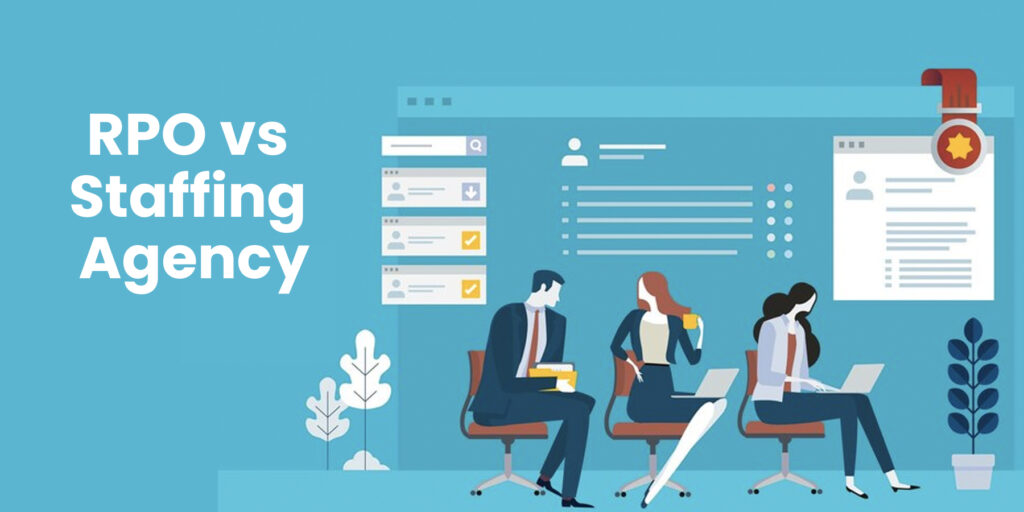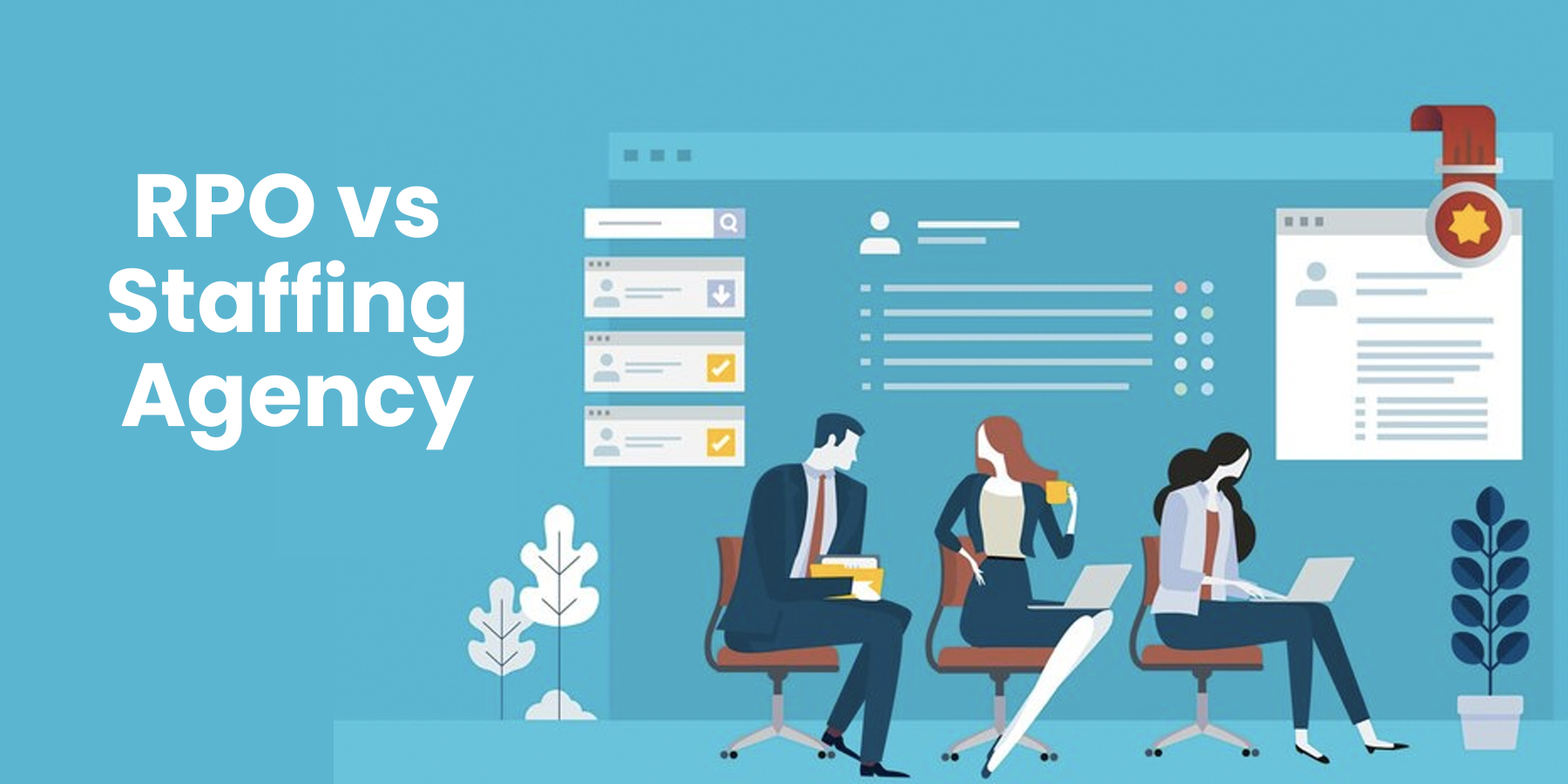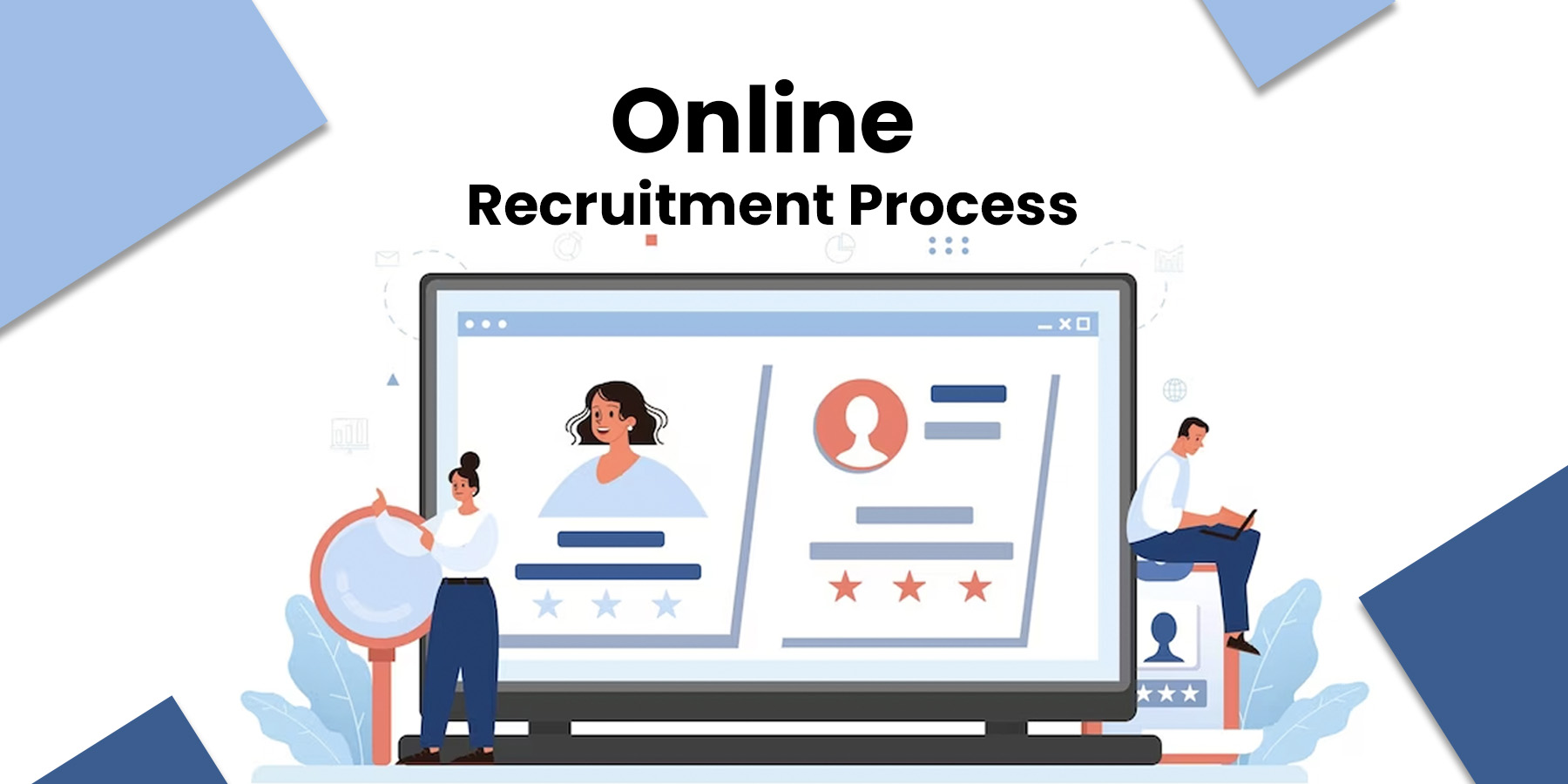
Businesses have many options to find and hire top candidates in the ever-changing recruitment and talent acquisition world. Two common approaches are Recruitment Process Outsourcing (RPO) and staffing agencies. Each has its own advantages and disadvantages, making it crucial for businesses to understand each method’s key differences and benefits.
In this article, we will compare RPO vs. staffing agency, providing you with the insights needed to make informed decisions about your recruitment strategy.
Table of Contents
Recruitment Process Outsourcing (RPO)
Comparing RPO and Staffing Agencies
- Scope of Services
- Duration of Engagement
- Cost Structure
- Talent Ownership
- Focus on Quality
Recruitment Process Outsourcing (RPO)
What is RPO?
Recruitment Process Outsourcing (RPO) is a comprehensive talent acquisition solution where a company outsources some or all of its recruitment processes to a third-party provider. This provider is responsible for managing the entire recruitment cycle, from sourcing and screening candidates to onboarding.
Key Benefits of RPO:
- Scalability: Recruitment Process Outsourcing can adapt to your changing hiring needs, whether you need to scale up rapidly or downsize during slower periods.
- Cost Efficiency: Recruitment outsourcing services provider often offer cost-effective solutions compared to in-house recruitment teams, as they can leverage their expertise and resources more efficiently.
- Expertise: Recruitment Process Outsourcing providers are recruitment specialists with in-depth knowledge of industry trends and best practices, ensuring a higher quality of hires.
- Reduced Time-to-Fill: RPO providers have dedicated teams and resources, allowing them to fill positions faster than traditional recruitment methods.
- Enhanced Candidate Experience: RPO providers focus on creating a positive candidate experience, which can improve your employer brand and attract top talent.
Staffing Agencies
What Are Staffing Agencies?
Staffing agencies, also known as employment agencies or temp agencies, match job seekers with temporary or permanent positions within client companies. These agencies maintain a database of potential candidates and connect them with job opportunities based on their skills and preferences.
Key Benefits of Staffing Agencies:
- Quick Access to Talent: Staffing agencies have a pool of pre-screened candidates readily available, which can expedite the hiring process.
- Flexibility: Businesses can use staffing agencies for short-term or project-based staffing needs, allowing for flexibility in workforce management.
- Reduced Administrative Burden: Staffing agencies handle many administrative tasks, such as payroll and benefits, saving businesses time and resources.
- Temporary Staffing: Staffing agencies are ideal for businesses looking to fill temporary or seasonal roles without the commitment of permanent employment.
Comparing RPO and Staffing Agencies
1. Scope of Services
- RPO: Recruitment process outsourcing providers offer end-to-end recruitment services, including workforce planning, candidate sourcing, screening, and onboarding.
- Staffing Agencies: Staffing agencies focus on sourcing and placing candidates into temporary or permanent positions based on specific job requirements.
2. Duration of Engagement
- RPO: Recruitment process outsourcing engagements are typically long-term partnerships designed to address ongoing talent acquisition needs.
- Staffing Agencies: Staffing agencies are often used for short-term or project-based staffing requirements.
3. Cost Structure
- RPO: Recruitment outsourcing services are often priced on a project basis, providing cost predictability.
- Staffing Agencies: Staffing agencies may charge a fee based on the temporary employee’s hourly rate or a percentage of the permanent employee’s annual salary.
4. Talent Ownership
- RPO: The client company typically owns the hiring process and may be able to convert temporary hires to permanent employees.
- Staffing Agencies: Staffing agencies often maintain a direct employment relationship with temporary workers, handling payroll and benefits.
5. Focus on Quality
- RPO: Recruitment process outsourcing providers prioritize the quality of hires and work closely with clients to align recruitment strategies with business goals.
- Staffing Agencies: Staffing agencies focus on quickly filling positions with qualified candidates, sometimes with less emphasis on long-term cultural fit.
Conclusion
Choosing between recruitment process outsourcing and staffing agencies depends on your organization’s needs, hiring volume, and recruitment strategy. Recruitment process outsourcing is ideal for businesses seeking long-term, scalable recruitment solutions with a strong emphasis on quality hires. Staffing agencies are suitable for short-term or project-based staffing needs, offering quick access to talent.
Ultimately, the decision between RPO and staffing agencies should align with your business goals and workforce requirements. By understanding each approach’s key differences and benefits, you can make an informed choice to meet your talent acquisition needs effectively.
Recruit Ninjas is here for you if you are looking for the best recruitment process outsourcing. We offer a hassle-free outsourcing recruitment process to help you with your business needs. Contact us today, and let’s get started!
David Bodiford
David Bodiford has been the Chief Strategy Officer at Vserve Ecommerce. Specializing in business development and strategic planning, David leads initiatives to expand Vserve Ecommerce's market reach, focusing mainly on the B2B sector. His expertise in digital marketing and strategic partnerships is integral to enhancing the agency's ecommerce solutions.


 The Art of Hiring: How to Get the Best Employees in the Market!
The Art of Hiring: How to Get the Best Employees in the Market! How to Test the Skills of a Remote Graphic Designer Before Hiring
How to Test the Skills of a Remote Graphic Designer Before Hiring